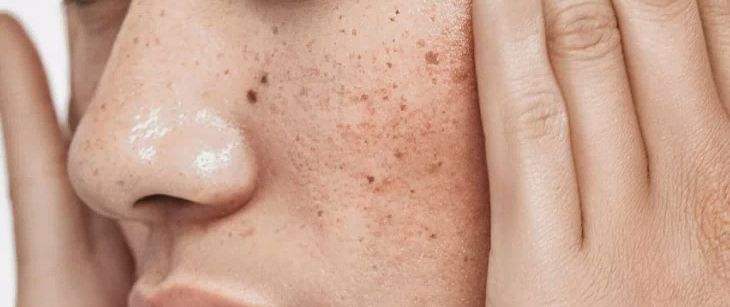
Originally posted: May 7, 2024
The skin is the largest organ in the human body. Studies show that even mild stress can compromise the health of your skin, both causing and exacerbating a variety of conditions. This chemical response might even make your skin not only more reactive, but it can also make skin issues harder to heal.
When I was in the thick of navigating burnout and a traumatic event, I noticed I a “spot” appear on my face. It looked like a large (think top of a plastic thumbtack size) freckle near my left eye and it seemed to have appeared out of nowhere.
Years later (at a conference? on line?), I heard a doctor mention that stress can cause skin pigmentation changes and I realized this likely happened to me.
Stress and pigmentation
Chronic, long-term stress can manifest on the skin as hyperpigmentation. A hormone called Adrenocorticotropic hormone (ACTH) is produced and secreted by the anterior pituitary gland, often in response to biological stress. This hormone triggers melanogenesis, the process of skin pigment production. It’s also worth noting that increased inflammation in the skin (also triggered by stress) is another trigger for hyperpigmentation.
This type of “stress” pigmentation has a tendency to start on the outer periphery of the face and spread inward. ?All forms of hyperpigmentation are made worse by UV exposure, so always apply a high level (SPF50) sunscreen daily.
Stress and skin – how does stress impact skin health?
Too much cortisol can cause inflammation, a big contributor to skin problems, and apparently stress can also trigger autoimmune issues and lead to flare-ups for conditions such as:
- Psoriasis
- Rosacea
- Eczema
- Alopecia
- Vitiligo
